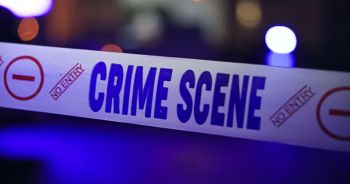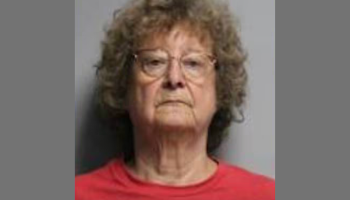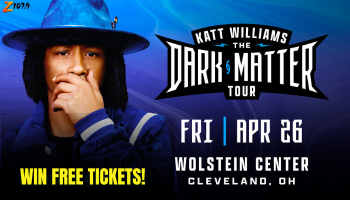1. Know your limits and stick to them.
The hard reality is that seventy five percent of people who imbibe alcohol to intoxication will have a hangover the next day.[1] A hangover is nature’s way of clearing the toxins in alcoholfrom your body, so the more you pour in, the nastier the hangover will be. The number of alcoholic beverages it takes to reach a state of intoxication varies from person to person and knowing your own limits is important. It’s recommended in some places that you don’t have more than three beverages in any 1 to 2 hour period, and no more than five beverages in one night.[2]
2. Eat before going out so alcohol isn’t absorbed as quickly.[1][2]
Eating food helps to reduce the acetaldehyde in your stomach, and it is the acetaldehyde that is thought to be the main cause of hangovers.[3]Eat a proper meal, not just a greasy snack.
3. Stick with one type of alcohol.
Variety is not the spice of life in terms of a hangover.[1] Staying with one type of alcohol will ensure that you’re not mixing up the various additives, flavorings, and other elements in different types of alcohol, which can all increase the chances of forming a hangover cocktail. Aim to enjoy a beer night or a vodka night or a wine night or a rum night.Cocktails are likely to bring you problems if you have too many because they mix alcohol types, so stick with having only one or two during the entire event.
4. Choose light liquors (for example,vodka or gin) over dark liquors (for example, brandy or whiskey).
Light liquors have fewer “congeners” (a minor toxic chemical element of alcohol that gives it its distinctive characteristics), which contribute to hangovers.[1] Overall, alcoholic beverages with more chemicals produce worse hangovers, and red wine is one of the worst culprits.[4]One study found that hangover symptoms varied by the type of alcohol consumed: (in order of decreasing severity) brandy, red wine, rum, whiskey, white wine, gin, vodka, and pure ethanol.[5]
5. Be careful with the bubbly.
Champagne and sparkling wine can literally go straight to your head. Studies have shown that the effects of bubbles in alcohol increases the delivery of alcohol through your system and cause you to become intoxicated faster.[3] If you can resist, perhaps leave the champagne for the toast and drink a different alcohol for the rest of the event.
- Choose less concentrated alcoholic beverages. Beer is better than shots of whiskey, for example
Stick with non-carbonated mixers. Just as with bubbly alcohol, carbonated mixers accelerate alcohol absorption
6. Stay hydrated.
Alcohol makes you urinate more, which can lead to dehydration. Have a glass of water before, during, and after consuming alcohol. The processes that break down alcohol also produce lactic acid and other chemicals that interfere with the production of glucose (sugar) and electrolytes; that’s why drinking sports beverages can be a good idea.[2]Avoid caffeinated beverages; these also make you urinate more. Caffeinecan also lead to diarrhea and a stuffy head when combined with alcohol.[3]While not generally serious side effects, they can certainly add to the punch of the hangover symptoms.
7. Be happy.
Research suggests that guilt about alcohol consumption, a neurotic personality, becoming angry or depressed while consuming alcohol, and having suffered “negative life events” in the past 12 months are better predictors of symptoms of hangovers than how much or what alcohol you consume during the night![5] Stay chilled, enjoy the occasion for the socializing opportunities that it presents, and vary your drinking with other activities.
- Have one glass of water after each alcoholic beverage. Doing so keeps you hydrated and can also slow your alcohol consumption.[2] Always keep a glass of water handy, or even keep the water in your hand and put down the alcoholic drink to drink just now and then. By actively making a choice to sip on water in between drinks, you lengthen the time taken to finish the alcoholic drink and you still have something to occupy your hands in a social setting.
- Drink at least a pint (almost half a liter) of water before going to bed
Walk around talking to people, dance, listen carefully to the music and what people have to say, and find the healthy nibbles. These are all good ways to distract yourself from relying on alcohol to enjoy the evening and they are also helpful in preventing you from drinking without thinking.
8.Eat a healthy breakfast.
If you managed to keep the hangover at bay or at a minimum, eat a breakfast withfruit, wholegrain toast, and honey. These healthy foods will restore the lost potassium, fructose and sodium caused by alcohol.[3]
- Taking over-the-counter rehydration sachets or rehydration tablets with vitamins added can help improve your salt loss.
Tips
- In terms of amount of alcohol consumed, 12 oz of beer = 5 oz of wine = 1.5 oz of spirits. Don’t think you’re imbibing less because you’re having white wine instead of Jack Daniels and Coke.
- Keep a large bottle of water by the bed you’re crashing or sleeping on. When you’ll wake up during the night or in the morning, you will be craving for water, but the headaches or someone throwing up in the bathroom will keep you from getting up or walking to get your water. Water by the bed is comfortable and makes the morning a lot more pleasant.
- Cheese and nuts are good foods to eat because the high fat content slows the absorption of alcohol. When in a bar, eat slowly while you drink.
- Avoid smoking. Smoking constricts your lungs and decreases the oxygen flow to your blood stream.
- Rehydrate with plenty of water, it helps keep you hydrated and flush some of the alcohol out of your system, the less drunk you are when you fall asleep the less hungover you will be (generally)
- Try drinking a sports drink such as Gatorade™ before going to bed, and perhaps even having one on waking up. It works for some people.
- Some people find that taking a capsule of milk thistle helps alleviate hangover symptoms.[3]The research is still out on this one but if it works for you, then use it.
- Paracetamol can help with the hangover headache; choose the soluble type so that it gets into your bloodstream faster but avoid taking it with caffeinated drinks as this can harm your liver, especially with alcohol still in your system.[3] See “Warnings” below on using aspirin and ibuprofen.
- If your stomach is upset, use over-the-counter antacid treatments.
- Take a walk in the fresh air to keep your head clear. This will help you to access more oxygen to help break down the alcohol toxins.[3]
- One Mediterranean remedy is to drink a spoonful of olive oil before drinking.[7] This is a fairly hard task for most people though! Most quality cafés and bars will sell bruschetta bread as an entrée; this contains olive oil. Just confirm they add a good table spoon or more of it.
- Try this interesting equation next time you’re out with mates to work out you’re BAC level.
- You need a pen, something to write on and a calculator or a mate that is good at maths.
- Step 1, multiply the number of standard drinks you have consumed by 10 (eg. 4 Drinks x 10 = 40)
- Step 2, multiply the amount of hours you have been drinking by 7.5 (eg. 3 Hours x 7.5 = 22.5)
- Step 3, Step one answer minus Step two answer (eg. 40 – 22.5 = 17.5)
- Step 4, your weight multiplied by 6.8 for male and 5.5 for female (eg. 80KG x 6.8 = 544)
- Step 5, step 3 answer divide by step 4 answer gives you you’re average Blood Alcohol Concentration level (eg. 17.5 / 544 = 0.032)
- This calculation does not take into consideration and is not limited to individuals, previous consumption of food products, ones mood, fatigue or any other factors that affect the BAC level.
- This equation is not to be used or relied upon to maintain any legal BAC limitations eg. The NSW driving limit of 0.02 and 0.05 BAC limitations for driving a motor vehicle.
- It is a serious offence and dangerous to drink and drive.
- So put a pen a paper in you “going out draw” now and try it this Saturday night.
Warnings
- Just because you’ve taken preventative steps, that doesn’t mean you won’t get drunk. Alwaysdrink responsibly.
- Always read the label on vitamins or any other drugs, especially the health warnings, to ensure that there will be no adverse side effects when mixed with alcohol.
- Be careful when consuming alcohol and caffeine. Too much caffeine mixed with too much alcohol can lead to a severe, and possibly fatal, increase in heartbeat.
- Using “Chaser” or any other congener-blocking drug does not prevent individuals from getting drunk. They only prevent or lessen the effects of a hangover.
- Avoid taking ibuprofen or aspirin. These can irritate your stomach lining even more than usual when alcohol is present in your system.[3]
- While consuming fatty foods and fat may seem to help to prevent a hangover, alcohol consumption combined with fat consumption can place added strain on your already overloaded digestive system. It’s a better idea to ease off the fatty foods until the hangover has cleared up.
- Remember: NEVER drink and drive! It’s not a question of whether you are legally intoxicated, it’s a question of whether or not it is safe to drive when you have consumed any amount of alcohol. Research shows that impairment begins long before a person reaches the blood alcohol concentration level necessary to be guilty of drunken driving.
- NEVER combine Tylenol or other brand of Acetaminophen with alcohol because the damage to your liver can be severe! Take aspirin if you must take a painkiller.
Things You’ll Need
- Ability to keep track of how many drinks you’ve had; perhaps ask a friend to help monitor if you’re finding it hard to resist.
- Only enough money for dinner and your limit of alcohol (in one pocket) and your taxi fare home (in another pocket). You don’t need your wallet, just your identification (driver’s license or other approved photo I.D. with your name, birthdate, residency) so you can gain access to clubs and as identification in case of emergency.

















